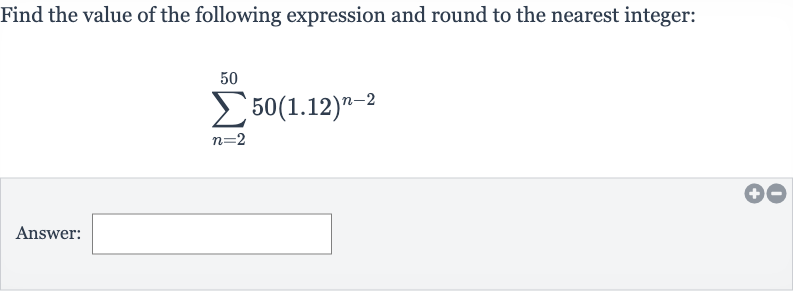Full solution
Q. Find the value of the following expression and round to the nearest integer:Answer:
- Recognize Geometric Series: Recognize that the given expression is a geometric series. A geometric series has the form , where is the first term, is the common ratio, and is the number of terms. In this case, the first term is , the common ratio is , and the series starts at and goes to .
- Adjust Series Starting Point: Adjust the series to start at for easier calculation. To do this, we can factor out the term from each term in the series, which gives us . Now the series starts at and goes to .
- Use Finite Series Formula: Use the formula for the sum of a finite geometric series, which is , where is the sum of the series, is the first term, is the common ratio, and is the number of terms. Here, , , and (since we start at and go to , which is terms).
- Calculate Sum Formula: Plug the values into the formula to find the sum of the series.
- Calculate : Calculate the sum using the values from Step .
- Substitute Value in Formula: Calculate using a calculator to ensure accuracy. (rounded to two decimal places for simplicity)
- Perform Multiplication and Division: Substitute the value from Step into the sum formula.
- Find Final Sum: Perform the multiplication and division to find the sum.
- Round to Nearest Integer: Round the sum to the nearest integer.

